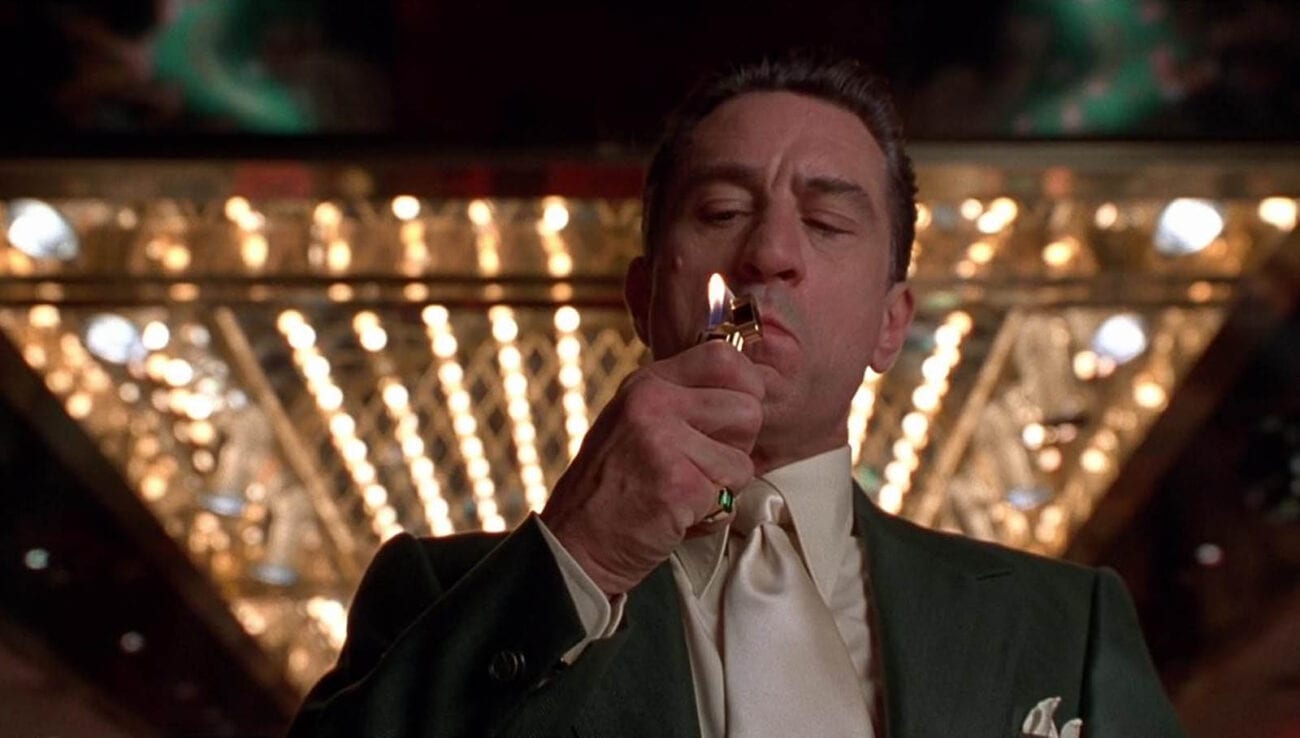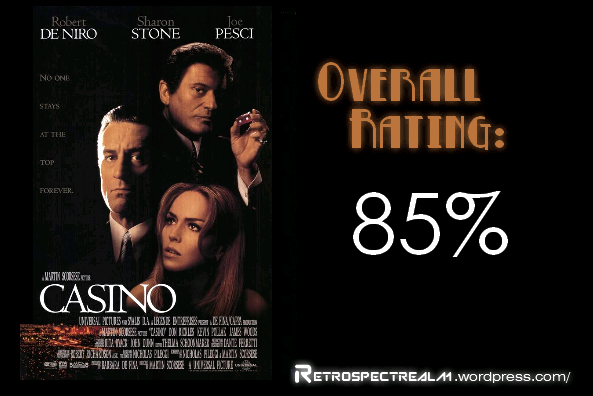Martin Scorsese's fascinating new film 'Casino' knows a lot about the Mafia's relationship with Las Vegas. It's based on a book by Nicholas Pileggi, who had full access to a man who once ran four casinos for the mob, and whose true story inspires the movie's plot.
FACEBOOK: SITE: Stuckmann revi. Casino is, in a sense, Scorsese's Godfather. It has the epic scale, the operatic violence and the cornered protagonist who craves legitimacy. Scorsese's Casino is just another Las Vegas spectacular, as noisy and purposeless and, at three hours, as seemingly eternal as the Kids' inferno at Circus Circus.

Casino 1995 First Published
Like 'The Godfather,' it makes us feel like eavesdroppers in a secret place.
Casino Tycoon Movie Review

The movie opens with a car bombing, and the figure of Sam 'Ace' Rothstein floating through the air. The movie explains how such a thing came to happen to him. The first hour plays like a documentary; there's a narration, by Rothstein (Robert De Niro) and others, explaining how the mob skimmed millions out of the casinos.
It's an interesting process. Assuming you could steal 25 percent of the slot-machine take - what would you do with tons of coins? How would you convert them into bills that could be stuffed into the weekly suitcase for delivery to the mob in Kansas City? 'Casino' knows. It also knows how to skim from the other games, and from food service and the gift shops. And it knows about how casinos don't like to be stolen from.
There's an incident where a man is cheating at blackjack, and a couple of security guys sidle up to him and jab him with a stun gun.
He collapses, the security guys call for medical attention, and hurry him away to a little room where they pound on his fingers with a mallet and he agrees that he made a very bad mistake.
Rothstein, based on the real-life figure of Frank (Lefty) Rosenthal, starts life as a sports oddsmaker in Chicago, attracts the attention of the mob because of his genius with numbers and is assigned to run casinos because he looks like an efficient businessman who will encourage the Vegas goose to continue laying its golden eggs. He is a man who detests unnecessary trouble. One day, however, trouble finds him, in the person of Ginger McKenna (Sharon Stone), a high-priced call girl.

If you like to know where you are with a director, Casino is the movie for you. Placing The Age Of Innocence and Cape Fear to one side for a moment, here we have Scorsese returning to what he knows best, and to the people he loves.
Co-written with GoodFellas screenwriter Nicholas Pileggi, and starring the usual suspects in the form of Bobby De Niro and Joe Pesci, you also have the warm reassurance of the presence of many of GoodFellas' character actors, grizzled of visage and twitchy of trigger-finger, Scorsese's mum doing a cameo, Elaine and Saul Bass producing the opening credits, and many recognisable directorial flourishes. Even better for Scorsese fans, within 15 minutes Joe Pesci is stamping on some schmuck's head in a bar, screaming obscenities as a bewildered Robert De Niro looks on with that great quizzical expression of his.

GoodFellas Part II? Well, sort of. Scorsese insists this isn't a mob film, and you can see his point. It tells the - slightly embellished - true story of Sam 'Ace' Rothstein (De Niro), a brilliant Mid-West gambler recruited by the wiseguys to run their casino in Vegas, which he proceeds to do with ruthless efficiency. It all sours when his old buddy Nicky Santoro (Pesci in fantastic psycho mode) comes to town and starts throwing his weight around at more or less the same time as Ace makes the one big reckless gamble of his life: persuading sex-bomb hustler Ginger McKenna (Stone) to marry him. This head-strong twosome just add too many maybes into the comfortable set-up, and slowly the easy money-making machine starts to malfunction. Then the baseball bats come out.
This is De Niro's finest hour certainly since GoodFellas and maybe since The King Of Comedy. Onscreen for nearly the whole three-hour running time, he is chillingly logical about his life at first, slowly descending into panic, frustration and violence as things go wrong. He plays it perfectly from start to finish, as indeed do the entire cast. Sharon Stone is a revelation, Pesci is his usual mesmerising self, and if at times the story drags - with too much voiceover and quasi-documentary - the three of them refuse to let go of your nether regions for a second.

If the violence is even more stomach churning than in GoodFellas (check out Pesci's creative use of a vice) and if Scorsese isn't making huge strides in terms of his filmmaking lexicon, this is still a powerful, disturbing and entirely fascinating examination of a specific time and place, and of the nature of the deals we do - with our employers, with our friends, with our lovers.